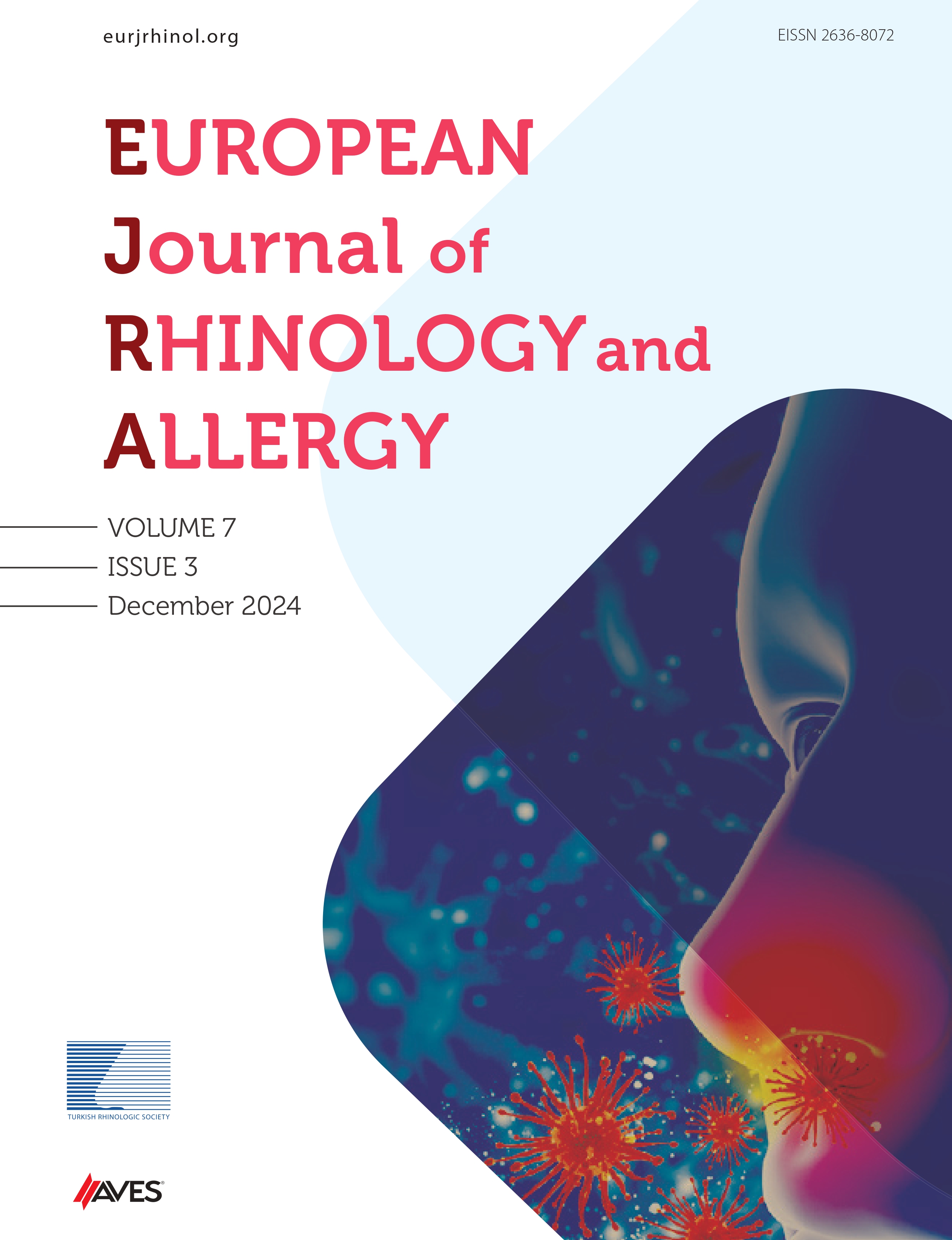Objective: This study presents the experience in epistaxis management in cases with Osler-Weber-Rendu syndrome (OWRS) and the outcomes of intravenous bevacizumab treatment in selected cases.
Material and methods: The records of patients diagnosed with OWRS who underwent medical and/or surgical treatment in the Otorhinolaryngology department of İzmir Katip Çelebi University Atatürk Training and Research Hospital between 2004 and 2018 were retrospectively reviewed. Consequently, 10 patients diagnosed with OWRS according to Curaçao’s criteria were included in the study.
Results: The mean epistaxis severity score (ESS) of the patients were 5.42±1.07 and 3.86±0.89 at first admission and after 3 months of follow-up, respectively. Moreover, four patients (40%) were evaluated for intravenous bevacizumab treatment after the initial treatment and/or surgery. Three patients underwent a high dose (5 mg/kg every 2 weeks for six times) of bevacizumab treatment, whereas one patient underwent a low dose (0.125 mg/kg every 2 weeks for six times) followed by a high dose of bevacizumab treatment. A decrease in ESS was observed in all cases after the treatment.
Conclusion: Bevacizumab may be a promising agent for patients with refractory epistaxis. Currently, it is not approved for the treatment of Osler-Weber-Rendu syndrome and a multidisciplinary approach can be considered for off-label use.
Cite this article as: Eren E, Balcı MK, İşlek A, Medeni ŞS, Hasanlı K. Efficacy of High-Dose Bevacizumab Treatment in the Management of Epistaxis in Cases with Osler-Weber-Rendu Syndrome. Eur J Rhinol Allergy 2020; 3(3): 69-71.

.png)

.png)